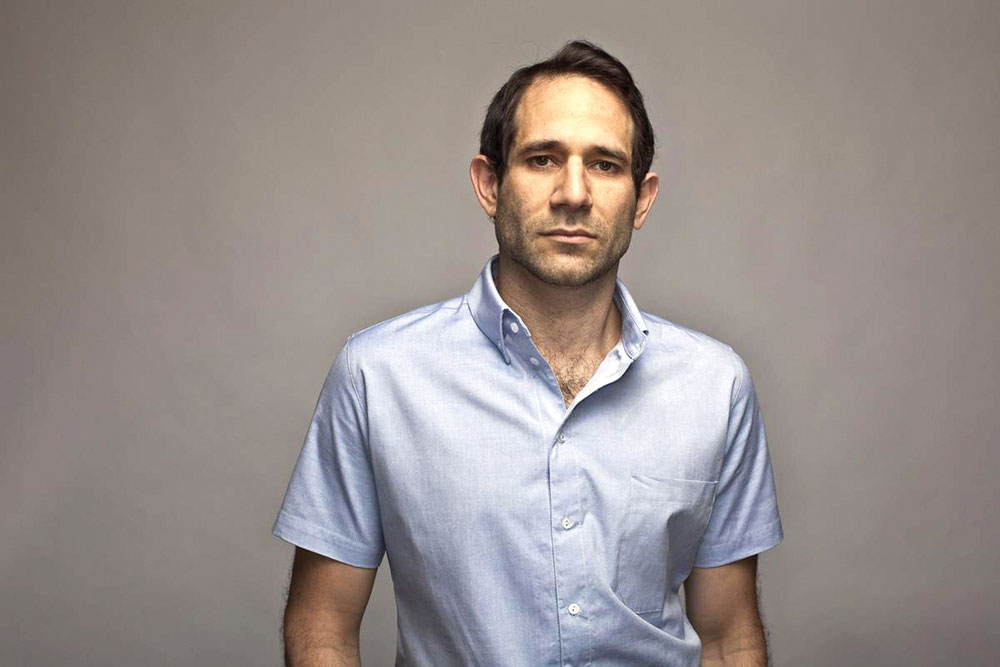March 29, 2018
Charney Battles $20 Million Judgment Against Him
Dov Charney, founder of industry suppliers American Apparel (asi/35297) and Los Angeles Apparel (asi/67971), is contesting a Delaware Chancery Court ruling that found he’s obligated to pay Standard General LP nearly $20 million plus interest – a debt incurred during an unsuccessful attempt to reclaim control of American Apparel in 2014.
 Dov Charney
Dov Charney
Charney told Counselor it’s the latest fight, but not the last, in the ongoing legal battle rooted in the collapse of the retail and in-house manufacturing side of American Apparel, the formerly Los Angeles-based manufacturer of fashion apparel basics he founded and built into an iconic, but controversial, powerhouse in multiple channels, including the imprinted wholesale market. Charney no longer has anything to do with the American Apparel brand. Last year, Top 40 supplier Gildan (asi/56842) purchased American Apparel’s intellectual property rights, some wholesale merchandise and some equipment, but not its production facilities or retail stores.
In an opening brief filed last week, Charney asked Delaware’s Supreme Court to reverse the Chancery Court ruling, which was handed down in December. Charney contends that the judgment against him should be dismissed because the Chancery Court did not have jurisdiction over the case.
“This particular case was nothing more than a breach of contract case that should have been brought in the Superior Court or some other law court,” Charney’s attorneys wrote in the brief.
Furthermore, Charney told Counselor that Standard General, an investment firm, fraudulently deceived him into entering into agreements that led to the debt. The alleged fraud, in Charney’s view, should invalidate the agreements and thus alleviate the debt. Charney’s lawyers assert that Chancellor Andre G. Bouchard erred in ruling on the matter instead of allowing it to proceed to a trial where the American Apparel founder would have the opportunity to prove his case.
The opening brief stated: “The court found, among other things, that Charney’s affirmative defenses were unsupported and that his alleged understanding of the deal was not reasonable. Yet reasonableness here should have been evaluated after a full trial. The agreements at issue in this matter do not preclude Charney’s defenses – something that would have come through in discovery and a full trial.”
Sean O’Sullivan, chief of community relations at Delaware Courts, told Counselor that Standard General has 30 days from the March 22 filing of the opening brief to file a response. It was unclear when Delaware’s Supreme Court would issue a decision on the case.
Charney told Counselor that, with interest, the judgment against him would be about $30 million – a number Counselor could not independently confirm. Nonetheless, Charney said even if he loses the court battle in Delaware, he intends to pursue a case in California, seeking to have the agreements with Standard General declared invalid because of alleged fraud.
Significantly for the promotional products industry, Charney told Counselor that Los Angeles Apparel, the new firm he launched in 2017, would not be affected if the judgment against him from Delaware stands. While he runs Los Angeles Apparel, the company is “owned by a consortium of investors” that does not include him and would not be impacted by the judgment, he asserted. Los Angeles Apparel manufactures in South Central Los Angeles, producing fashion basics.
“No court ruling is going to stop what we’re building here,” Charney told Counselor. “We’re raising our flag again, trying to create new standards in the business with American manufacturing. I’ve been in this industry since my mid-teens. I’m 49 now and I want to once again redefine the T-shirt. Los Angeles Apparel isn’t going anywhere.”
 Charney was Counselor's 2004 Person of the Year
Charney was Counselor's 2004 Person of the Year
In his memorandum opinion awarding the judgment against Charney, Chancellor Bouchard found that Standard General’s agreements with the entrepreneur were valid and enforceable, effectively meaning that Charney owed the investment firm the money. Bouchard also dismissed Charney’s claims that he was deceived.
“Charney’s primary defense is that Standard General made certain oral promises to him that were false, which fraudulently induced him to enter into the agreements,” Bouchard wrote. However, “I conclude that Charney could not have reasonably relied on any of these alleged false promises because they directly conflict with the terms of the eight written agreements he signed, and that his other affirmative defenses fail as a matter of law and undisputed fact.”
Those keen for insights into one potential narrative of the corporate intrigue that sizzled during the last days of American Apparel as a manufacturing and retail operation might be interested in Bouchard’s memorandum, which is viewable here.
After American Apparel’s board of directors suspended Charney for alleged misconduct in June 2014, he teamed up with Standard General, borrowing approximately $20 million to increase his holdings in the company to close to 43% of its outstanding shares, Bouchard wrote. Charney was contemplating running a proxy contest to replace the board that had suspended him, said Bouchard. The Chancellor continued:
“In July 2014, after the Company fought back, Charney, Standard General, and American Apparel entered into a ‘Standstill Agreement.’ The Standstill Agreement reconstituted the board of American Apparel, established a process for a committee of the new board called the Suitability Committee to investigate Charney’s alleged misconduct and decide whether he would return as CEO, and documented Standard General’s commitment to invest up to $25 million in the Company. Charney and Standard General entered into a series of other agreements that, together with the Standstill Agreement, define the terms of their relationship…
In December 2014, the Suitability Committee voted against reinstating Charney, and its new board terminated his employment for cause. Over the course of the next year, the parties became embroiled in litigation in multiple forums and American Apparel filed for bankruptcy.”
The litigation includes Charney filing suit in California in 2015, asserting the agreements with Standard General were invalid and unenforceable. In July of the same year, Standard General filed the action in Delaware asking that agreements be upheld and that Charney be ordered to pay the loan plus interest.
In November of 2016, American Apparel filed for Chapter 11 bankruptcy and entered into a proposed agreement to be acquired by Gildan. Montreal-based Gildan completed the purchase in February 2017 and has been selling the American Apparel brand in the promotional products/branded apparel market.
